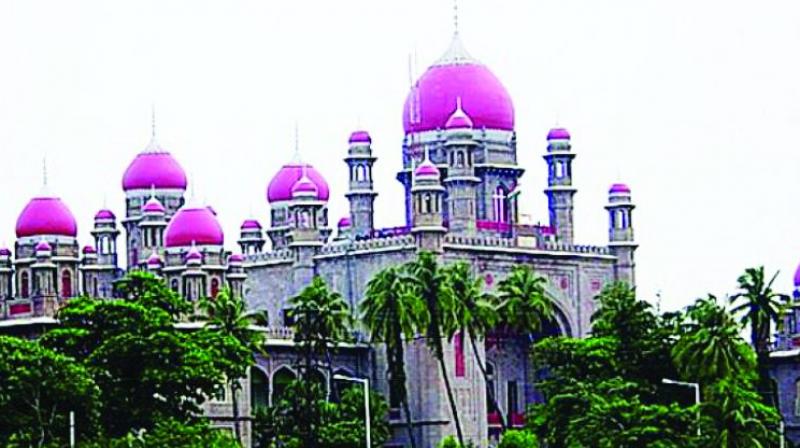It's CM's right to choose council of ministers, says Hyderabad High Court

Hyderabad: The Hyderabad High Court has made it clear that it was within the domain of the Chief Minister to make his choice and advice the Governor as to who shall be appointed as the minister in the Council of Ministers. A division bench comprising Chief Justice Thottathil B. Radhakrishnan and Justice V. Ramasubramanian was dismissing a PIL by a practising advocate Dara Srisailam from Warangal seeking to declare the act of Telangana state Chief Minister K. Chandrasekhar Rao in not referring the names of women MLAs name to the Governor since June 2, 2014 till date to appoint them as ministers in his Cabinet which he said was violative of Article 14, 15, 16, 21 and 164 of the Constitution.
The bench noted that there was no provision in Article 164 of the Constitution, except those relating to some of the states enumerated therein, which provides any constitutional compulsion as to inclusion of any particular community. The bench pointed out that Article 164 has been made in such a way that there was no room for any exclusion either on the basis solely of gender, or on the basis of religion, caste or community and similarly, it was within the domain of the Chief Minister to make his choice and advice the Governor as to who shall be appointed as the minister.
The bench said, “The due procedure in relation to the advice of the Chief Minister having been made, the Governor is always within the jurisdiction to appoint the Ministers in the Council of Ministers. That is not a matter which would be justiciable in terms of Article 226 of the Constitution unless the particular person so included is disqualified to hold such office in terms of the Constitution and the Laws.”
Referring to the argument of the petitioner that the constitutional vision was to push forward the SC, ST, and BC communities and womenfolk thereof, the bench said, “We are of the view that it would not be within judicial domain to take cognisance of any such proposition, having regard to the limits of judicial review in relation to matters falling under Articles 163 and 164 of the Constitution.”

